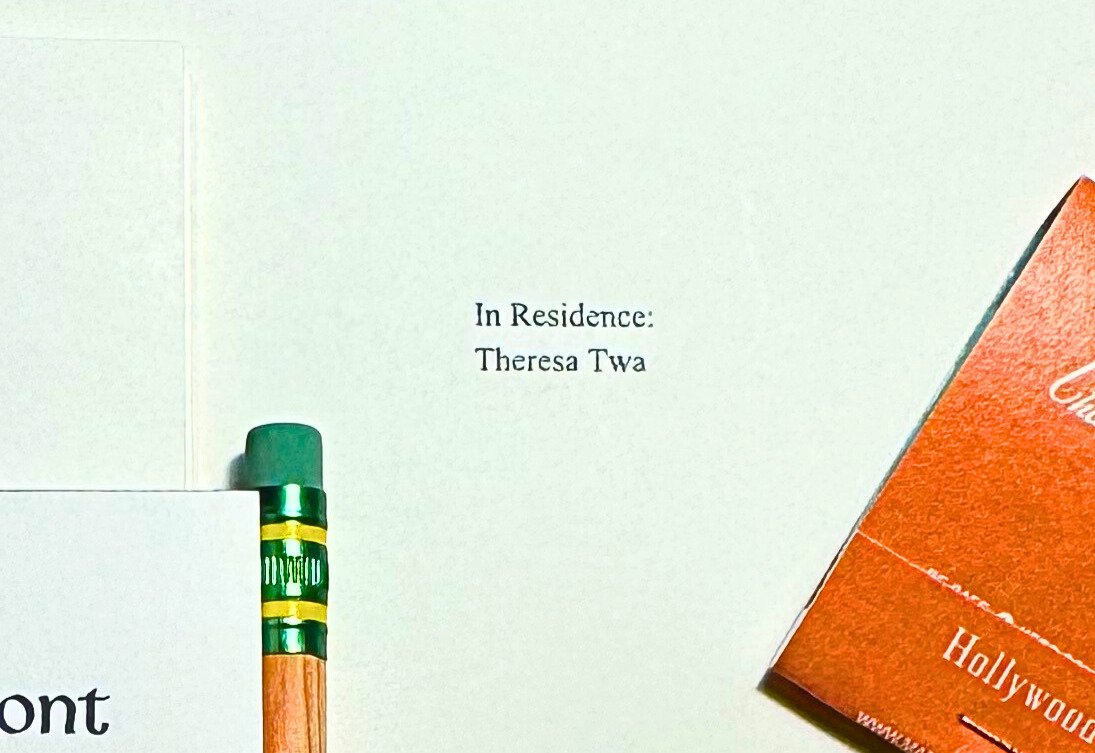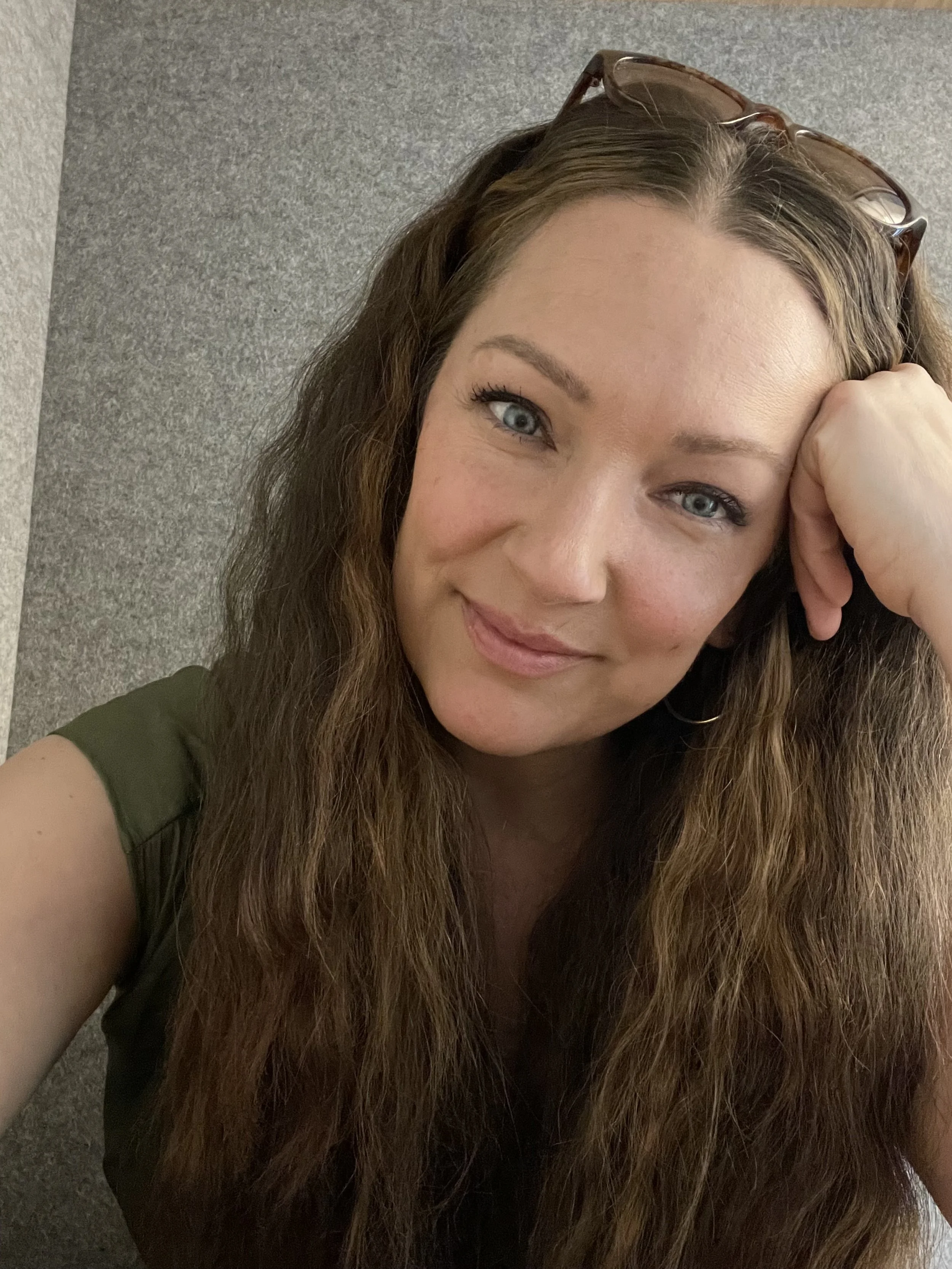
Writer |Performer |Educator

ABOUT ME
Theresa Martinez-Twa is a Chicana feminist writer, comedian, and MFA candidate in Screenwriting at the University of Nevada, Las Vegas. Her work bridges media studies, feminist theory, and creative practice, exploring how beauty, camp, and satire operate as cultural and political performance—especially where cosmetic aesthetics intersect with power, gender, and nationalism.
With roots in stand-up, improv, and sketch comedy, Theresa infuses her scholarship and screenwriting with sharp wit, emotional depth, and a flair for the unexpected. Her stories often live at the crossroads of feminism and magical realism, blending the domestic humor of Erma Bombeck, the mythic intimacy of Gabriel García Márquez, and the campy edge of John Waters. She creates bold, irreverent narratives that celebrate women’s resilience, joy, and delightful messiness.
Writer
·
Performer
·
Educator
·
Cat Lady
·
Writer · Performer · Educator · Cat Lady ·
Writing Samples available
-
Teaching
Women in Film (UNLV)
Filthy, Feminine, and Free: Camp Cinema as Resistance to the Policing of Women’s Sexuality
The Evolution of SNL Comedy, Writing, and Feminism: The Impact of Female Performers and Writers
The Modern Late-Night Talk Show: Format, Writing, and Production
From Sketch to Screen: Analyzing SNL Sketches Turned Into Feature Films
-
Academic Research
My research investigates the politics of aesthetics and how image, performance, and embodiment operate as instruments of cultural power. Rather than advancing a partisan argument, my work critically examines the visual and ideological codes through which belonging and authority are constructed. In particular, I study the ways conservative movements deploy beauty, physiognomy, and gendered performance to signal conformity and legitimacy, and how satire and media representation reflect or resist these codes. Situated at the intersection of performance studies, media theory, and political aesthetics, my work seeks to illuminate the feedback loop between representation and governance how we learn to see, judge, and discipline ourselves through the images that surround us.
-
Projects
4 Speed Stampeed (Story Producer)
-
Feature Films
The Yes Feeling
Bitchcraft
Sinners Jackpot
-
Scripted Television
The Kitty Kitty Club
GoGo Gonzalez and the A.V. Club
Brotherhood: SEOUL
Flor de Fuego
-
Series Pitches
The Hemingway (Docuseries)
West of the Page (Docuseries)
Skin Deep (Docuseries)
The Setting (Competition)
As an MFA candidate, I’ve had the privilege of teaching at the University of Nevada, Las Vegas, one of the most diverse universities in the country. A designated Hispanic-Serving, Minority-Serving, and Asian American and Native American Pacific Islander-Serving Institution, UNLV’s student body reflects a rich tapestry of backgrounds. Over a third of students are first-generation, meaning they are the first in their families to attend college. Teaching in this environment has deepened my understanding of supporting various voices and perspectives.
In my teaching practice, I aim to create an inclusive and supportive environment that meets students where they are while encouraging them to grow. I want students to feel empowered to explore their creative potential and understand their unique voices. Students learn best when they feel safe to take risks, make mistakes, and experiment with new ideas. My classroom is a space where students cannot only develop the technical skills necessary to succeed as screenwriters but also cultivate their critical thinking, sense of self, and ability to defend and articulate their choices.
Many of these students, like myself, may have initially felt that a career in the arts was an impossible dream. By creating an environment where they feel seen, heard, and valued, I’ve witnessed these students push past their fears, take on challenges, and emerge as confident creators and thinkers. I encourage them to draw from their lived experiences and cultural backgrounds, knowing that their personal stories are valid and vital to the broader artistic conversation.
Ultimately, my teaching philosophy centers on fostering a creative community where students can connect with the work they’re most passionate about. Whether they are writing, performing, or creating, my role is to help them discover how art allows them to share their stories, express themselves fully, and find their place in the world. By providing students with the tools to articulate and defend their ideas, I’m helping them become better artists, thinkers, and communicators. I believe this is the foundation for success in their academic pursuits and the world beyond the classroom.
